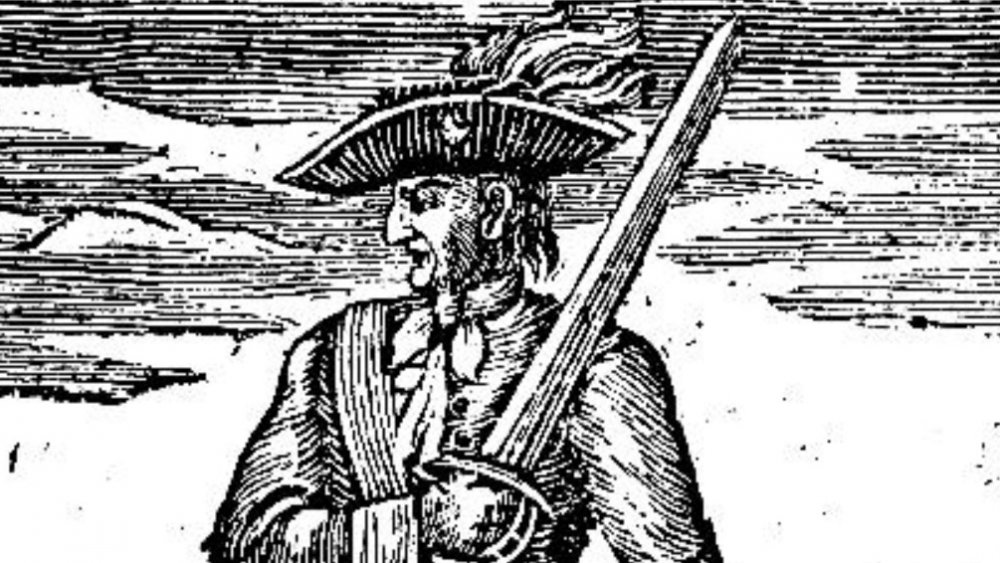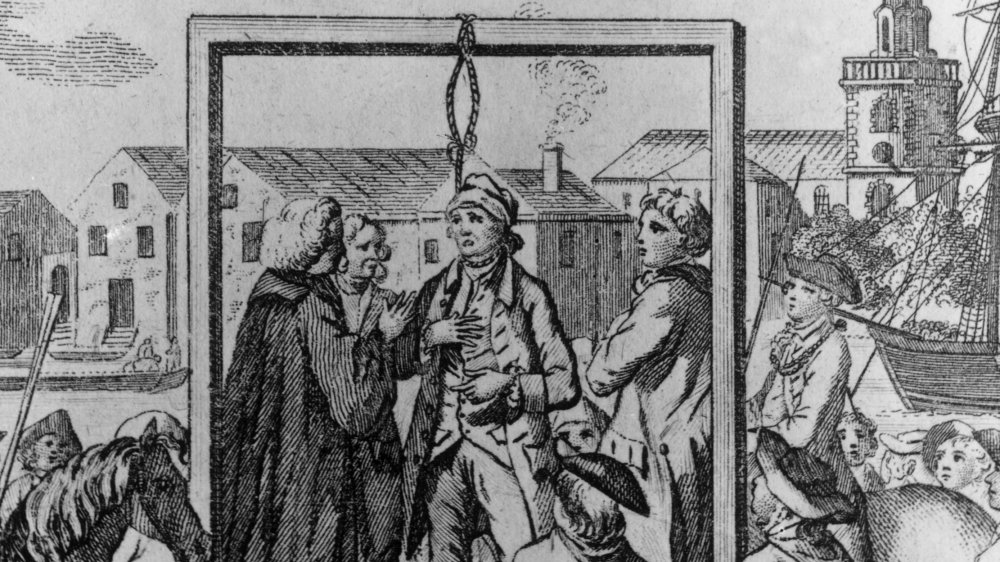The Truth About Calico Jack's Death
There's never been a criminal element as widely romanticized as the legends of the golden age of pirates. Images of freedom on the high seas and suspiciously well-choreographed swordplay somehow overshadow all of the murder and vitamin deficiency and ever-present dude-stink inherent in the lifestyle. To picture the life of a pirate is to picture liberty, an endless horizon, and a time when Johnny Depp didn't make us sad yet.
The iconography and bombast of the age of sail have sparked people's imaginations for hundreds of years, and men like Blackbeard and Stede Bonnet have become embedded in the cultural subconscious, so much so that it can be easy to forget that they were, in the end, just guys. Regular guys on sailboats living difficult lives that, generally speaking, ended abruptly and before their sell-by dates.
By way of example: Jack Rackham, or Calico Jack. He's well known enough that you've probably heard his name, but the man captained a ship for less than two years, which is around the same amount of time most people work at a sandwich shop after high school. And like those teenage Panera Bread employees, he wound up unemployed because he showed up to work drunk.
All jacked up
According to PBS, Rackham's ship was boarded and captured by the British Royal Navy in 1720 when he and his crew were were too wasted to put up a fight. Jack was arrested along with his shipmates, including his lover, Anne Bonny. Rackham's final request was to see Anne one last time, at which point she famously remarked "if you had fought like a man, you would not now be about to hang like a dog."
And hang like a dog he did, presumably muttering something like "Women, right?" On November 18th, 1720, Jack Rackham was executed in Port Royal, Jamaica, where his body was subsequently displayed as a warning to would-be scalawags. Today, the small island where they left his body dangling is called Rackham's Cay, so that's sort of a win. Sort of.

